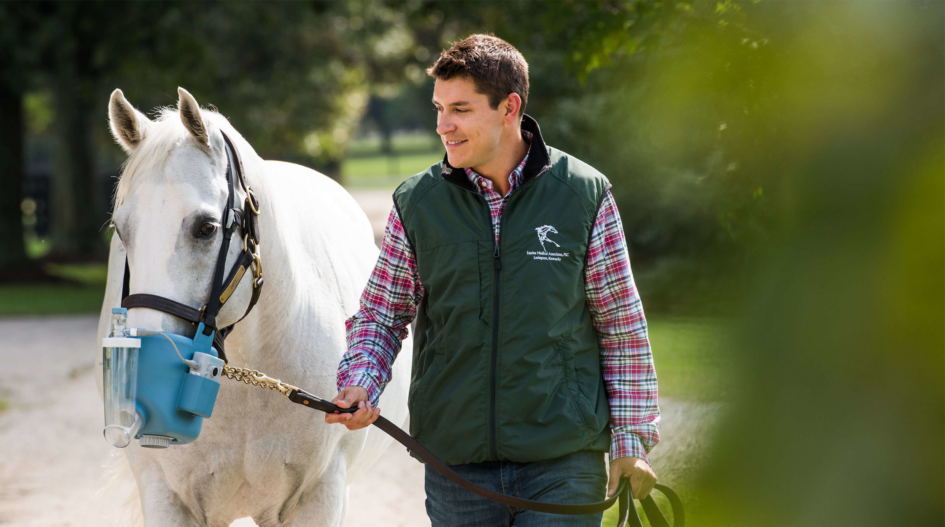Just like humans, our horses can experience allergies, especially during the changing seasons. Most commonly, we think about reactions to bug bites or a bad meal presenting as hives or dermatitis. But did you know your horse can inhale allergens as well? These can lead to other allergic responses such as cough, wheezing, runny nose, watery eyes, or even lethargy or poor performance. Respiratory allergies may require a slightly different approach to treatment than your typical routine.
Step 1: Diagnosis
Many times, equine allergies can be initially diagnosed by the description of the symptoms. This is especially true if other treatments have failed or resulted in the recurrence of the symptoms. For example, after treating that runny nose or cough with rounds of antibiotics and still lacking improvement, it may be time to consider allergies as the culprit.
Discuss with your vet to confirm your suspicions about allergies. They may agree with you off the bat or may want to do more testing to confirm. Furthermore, your vet can run tests to identify specific allergens for your horse. Then you can develop plans to remove those from your horse’s environment or diet if possible. But in the end, your vet will lead you down the road to the more specialized treatments available for these respiratory allergies.
Step 2: Treatment
This is where Flexineb has made its mark. The Flexineb E3 Equine Nebulizer helps alleviate respiratory problems in horses by using aerosolized medications and natural therapies. This is much like an inhaler for humans. This mask has become an equestrian and veterinary favorite due to being lightweight, portable, and silent. It is perfect for use at home or on the road. A seal ensures the unit fits securely around the horse’s muzzle to maximize the inhalation of the product.

The Flexineb E3 can administer antibiotics, corticosteroids, bronchodilators, or even natural solutions or saline to help remove mucus and inflammation. Any of these may be necessary for your horse’s allergy flare-up. It works by converting medications and therapies into a very fine aerosol mist that then gets inhaled into the lungs as your horse breathes through the mask. The aerosolized treatments allow for a highly concentrated amount of the medication to reach the lungs directly, rather than, say, an injection or pill that must travel throughout the body before affecting the area of concern. A discussion with your vet will help you know which medication is best to use for your horse.
Step 3: Upkeep
Once your horse is on a treatment regimen, you will likely find a variety of scenarios that have you reaching for the nebulizer. Not only will it help manage respiratory allergies, but opening those airways again will help support immune health, bodily function, and of course performance. Beyond respiratory allergies, this therapy can help treat asthma, infections, inflammation, and dry coughs, and help condition lungs for horses in training. You can shop for different medication cups and replacement parts from Flexineb HERE.
Shop Now
Shop more products for allergy season here. Or, you can shop all our products at FarmVet.com 24/7. You can also call one of our friendly Sales Associates at 1-888-837-3626 or email your order to info@farmvet.com.
Learn More
Learn more about allergy season and products that can help your horse, with both respiratory and skin conditions, HERE.
We encourage you to share this blog with your friends or drop a comment below to share your thoughts with us!


1 Pingback